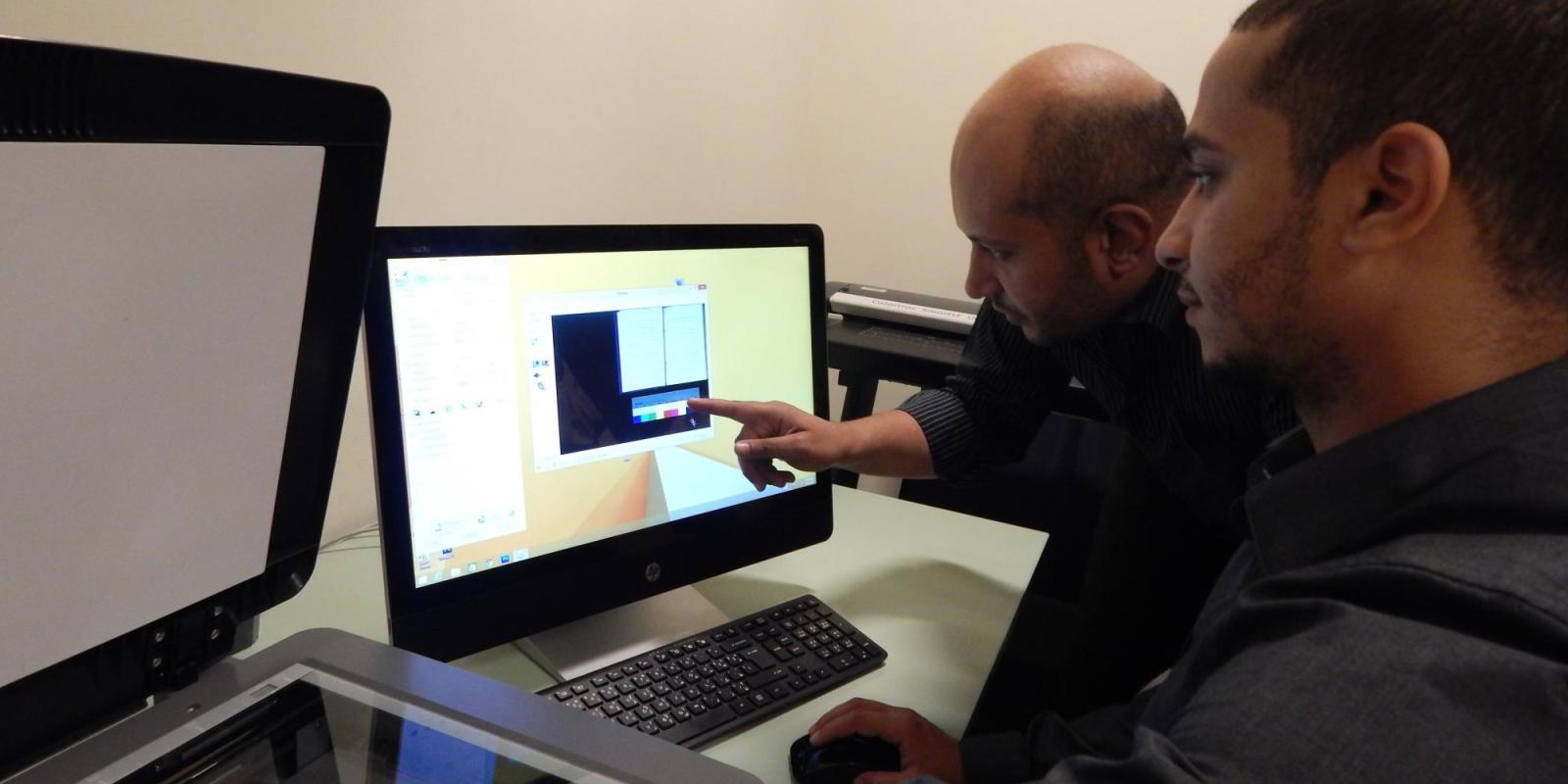
AUC Joins Top Universities in Arabic Collections Online Archives Initiative
AUC’s collection of Arabic books will soon become part of Arabic Collections Online (ACO), a digital archive of Arabic materials, in partnership with New York University in Dubai, as well as Columbia University, Cornell University, Princeton University and the American University of Beirut.
The online archive comprises a digital library of some 15,000 Arabic works from the late 1800s to the early 20th century. The library encompasses works in different fields, from science, history and business to religion, literature and poetry.
“The AUC community will gain access to Arabic material that was previously inaccessible,” explained Mark Muehlhaeusler, director of the Center of Excellence for the Middle East and Arab Cultures at the AUC Library. “Scholars and researchers will have access to texts that have been digitized, and will no longer have to request copies vie inter-library loan.”
The idea of the project, Muehlhaeusler noted, is to create a service analogous to Google Books and HathiTrust. “Libraries have begun to create a digital library to preserve their book collections and provide access,” he noted. “The aim of ACO is to create something similar for Arabic literature because Google Books does not have Arabic material available to students or scholars. Students at AUC won’t experience as much difficulty when trying to find a book in print. Students in the United States, for instance, have the capacity to access a book through a library loan from another university, but here we don’t have the means. However, if another university has digitized a book, we will then be able to provide students with research material.”
Although AUC owns a large collection of Arabic material, it is only possible to represent a sub-set of this material. The selection is also determined by copyright laws. “Egyptian legislation stipulates that copyrights expire 70 years after the death of an author. Because of this, we are limited as to what titles we can choose,” said Muehlhaeusler. “Thus far, we have identified 3,000 titles in our Arabic collection. These books are old publications from the late 1800s where copyrights are no longer active.”
Selecting material is only part of the process, which involves long hours of manual labor. “AUC has a time limit of three years to complete the project,” Muehlhaeusler said. “The scanning of pages from each individual book is what takes time, in addition to quality control, and transfer of packages and books. It’s a big team effort where almost everyone in the library is involved.”
Muehlhaeusler hopes the project would expand to serve numerous purposes. “I’d really like this not to be a static library, but one where other projects can grow out of it,” he said. “I’m hoping the digital library will be a resource for other types of research. For example, the study of computational linguistics involves an in-depth analysis of text corpora, and I hope that we can explore the possibility of using the raw scans to create a corpus as a by-product of this project. The scanned books will also lend themselves for use in teaching, because they are easily accessible: there would be an opportunity to incorporate them in some of the online courses that we plan to develop at AUC.”
The digital library will be available to AUC students and academics through a link in the AUC library catalog. The actual digital archive will be at a site hosted by New York University in Dubai.
